Agricultural enterprises focus on emissions mitigation
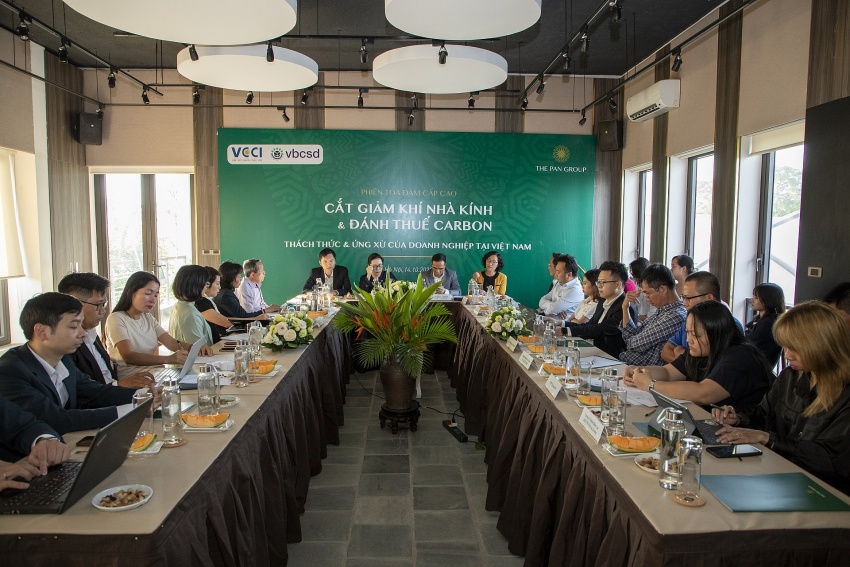 |
| Agricultural enterprises pay attention to emissions mitigation |
There are still three years for enterprises to prepare for compulsory mitigation measures, which are regulated at the government’s target committed in the updated National Determined Contribution. Accordingly, from 2022 to 2025, there is no pressure on facilities to reduce emissions, but there will be a focus on enhancing capacity to carry out GHG inventory and develop plans. From 2026 to 2030, mitigation measures at all levels will be implemented will be distributed.
| Being proactive in implementing solutions for emission mitigation before having compulsory requirements will be an advantage for enterprises. If they do not have any preparation, they will be confused once the policy officially comes into effect. |
However, at present, many agricultural enterprises are proactive in building GHG mitigation emission strategies to meet the international partners’ demand and for their sustainable business development.
Speaking at the workshop on GHG emission mitigation and carbon tax application, organised by the Vietnam Business Council for Sustainable Development and The PAN Group on October 14, Hoang Thanh Vu, vice general director of Sao Ta Foods JSC, said that emission mitigation was a compulsory requirement from large-scale international partners.
“In recent three years, Sao Ta had opportunities to export shrimp for Tesco – the second largest supermarket chain in the United Kingdom. They asked the company to mitigate 5 per cent of methane emissions at shrimp farms per year. To meet the partner’s demand, the company installed a rooftop solar panel system and planned trees in the surrounding area of farms,” Vu said.
Sao Ta is a member of The Pan Group - one of the first corporations to build a set of internal sustainable development indicators. The group operates a large-scale agriculture eco-system, and its products are exported to more than 40 countries, and the export turnover accounts for 50 per cent of the group’s revenue. Thus, the group is aware of the importance of activities demonstrating in-depth investment, reducing resource input, cutting emissions, and creating benefits between the environment, workers, and the community.
At the workshop, a GreenFeed representative shared the group’s experiences with emission mitigation.
“The company built the GHG inventory schedule and thoroughly applied energy-saving solutions. Along with the installation of rooftop solar panels, the company uses biomass material for general energy instead of coal,” the representative said.
“Besides, the company participates in a group with the Ministry of Natural Resources and Environment and the State Bank of Vietnam to build the criteria framework for issuing a green bond. This will help enterprises remove barriers in mobilising finance for sustainable development targets.”
Pham Nam Hung, a specialist in the Division of Greenhouse Gas Emission Reduction and Ozone Layer Protection under the Ministry of Natural Resources and Environment said, “Being proactive on solutions for emission mitigation before having compulsory requirements will be an advantage for enterprises. If they do not have any preparation, they will be confused once the policy officially comes into effect.”
“It is also an advantage in the GHG inventory process because the authority will also consider the achievements in emission mitigation to evaluate their GHG inventory. However, enterprises face challenges. Notably, they lack knowledge about regulations and technical requirements for inventory, and the cost for the inventory is also big,” Hung said.
During the workshop, experts and business representatives discussed GHG inventory, a concern of many businesses. They also shared practical experiences of leading companies in Vietnam on reducing GHG emissions to understand trends and impacts of GHG mitigation better and issue directions for businesses on solutions to meet strict requirements of international markets.
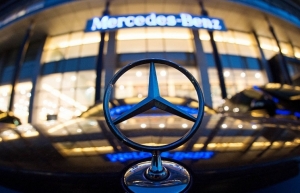 | Emission fraud plagues famous German car makers With a billion-dollar fine and the huge number of recalled vehicles, will the emission fraud scandal drag down Mercedes-Benz like it did Volkswagen back in 2015? |
 | Nissan joins long line of emission scandals Customers’ belief in giant car manufacturers is once again shaken as Nissan is caught up in another emission fraud scandal, after on July 2 it admitted falsifying emission tests on 19 models offered in Japan. |
 | A win-win situation for greenhouse gas emission cuts Enterprises operating in Vietnam still have opportunities to pay for carbon value or ecology services voluntarily via partnerships with forest owners. These initiatives will provide win-win prospects for domestic enterprises and smallholder forest owners in the effort to cut greenhouse gas (GHG) emissions. |
 | The principles for emission ambition In November 2021 at the COP26 climate summit, Prime Minister Pham Minh Chinh announced Vietnam’s strong commitments in responding to climate change and implementing mechanisms under the Paris Agreement to achieve net-zero emissions by 2050. VIR’s Van Nguyen spoke with Dinh Thi Quynh Van, general director of PwC Vietnam, about how the country can successfully carry out its commitments. |
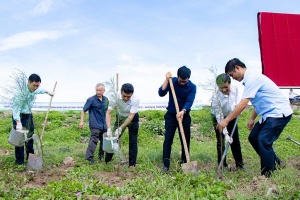 | Panasonic announces global emission reduction goal for 2050 Panasonic Group has announced its commitment to reduce emissions by more than 300 million tonnes, or about 1 per cent of the current total global emissions of 33 billion tonnes, by 2050. |
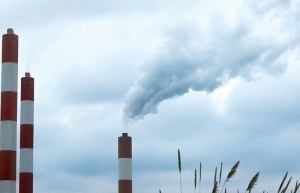 | International role key for methane emission cuts International support is crucial for Vietnam to reduce methane gas emissions in the agricultural sector – one of the biggest emitters in the country. |
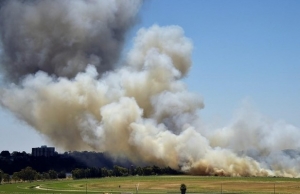 | Companies stumped by GHG emission obligations Although the Vietnamese government is advocating the development of a low-carbon economy, many businesses are scratching their heads over applying proper solutions to make their performance more environmentally friendly. |
What the stars mean:
★ Poor ★ ★ Promising ★★★ Good ★★★★ Very good ★★★★★ Exceptional
Related Contents
Latest News
More News
- $100 million initiative launched to protect forests and boost rural incomes (January 30, 2026 | 15:18)
- Trung Nam-Sideros River consortium wins bid for LNG venture (January 30, 2026 | 11:16)
- Vietnam moves towards market-based fuel management with E10 rollout (January 30, 2026 | 11:10)
- Envision Energy, REE Group partner on 128MW wind projects (January 30, 2026 | 10:58)
- Vingroup consults on carbon credits for electric vehicle charging network (January 28, 2026 | 11:04)
- Bac Ai Pumped Storage Hydropower Plant to enter peak construction phase (January 27, 2026 | 08:00)
- ASEAN could scale up sustainable aviation fuel by 2050 (January 24, 2026 | 10:19)
- 64,000 hectares of sea allocated for offshore wind surveys (January 22, 2026 | 20:23)
- EVN secures financing for Quang Trach II LNG power plant (January 17, 2026 | 15:55)
- PC1 teams up with DENZAI on regional wind projects (January 16, 2026 | 21:18)

 Tag:
Tag:




















 Mobile Version
Mobile Version